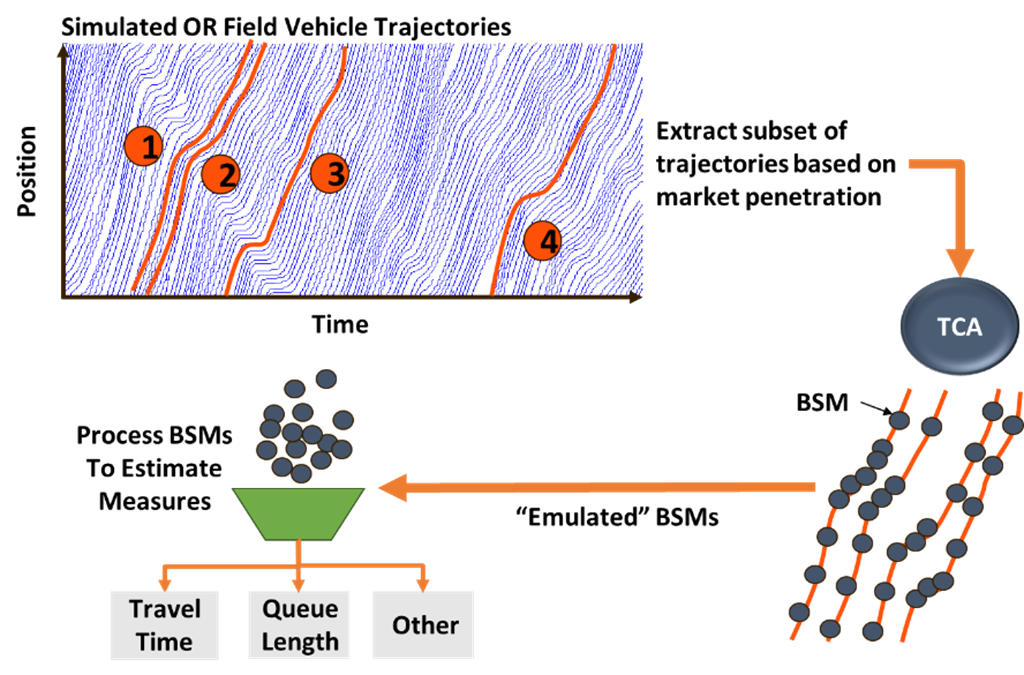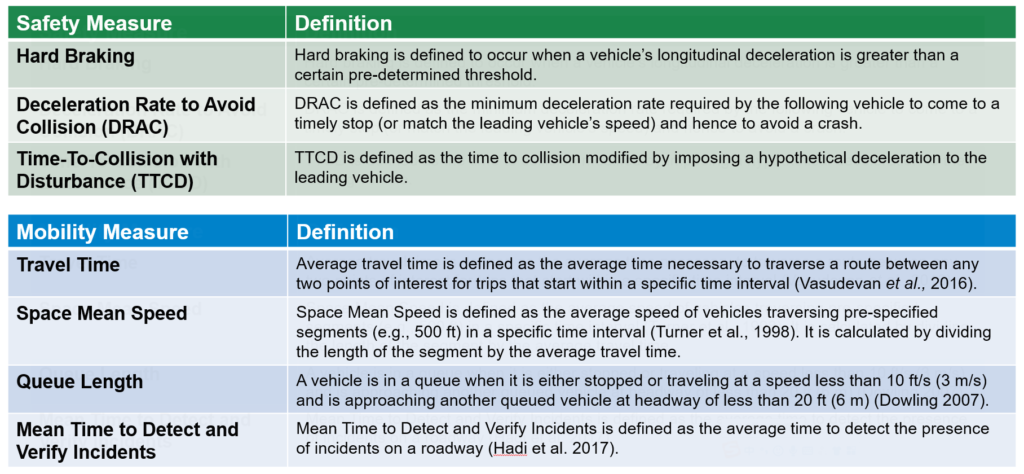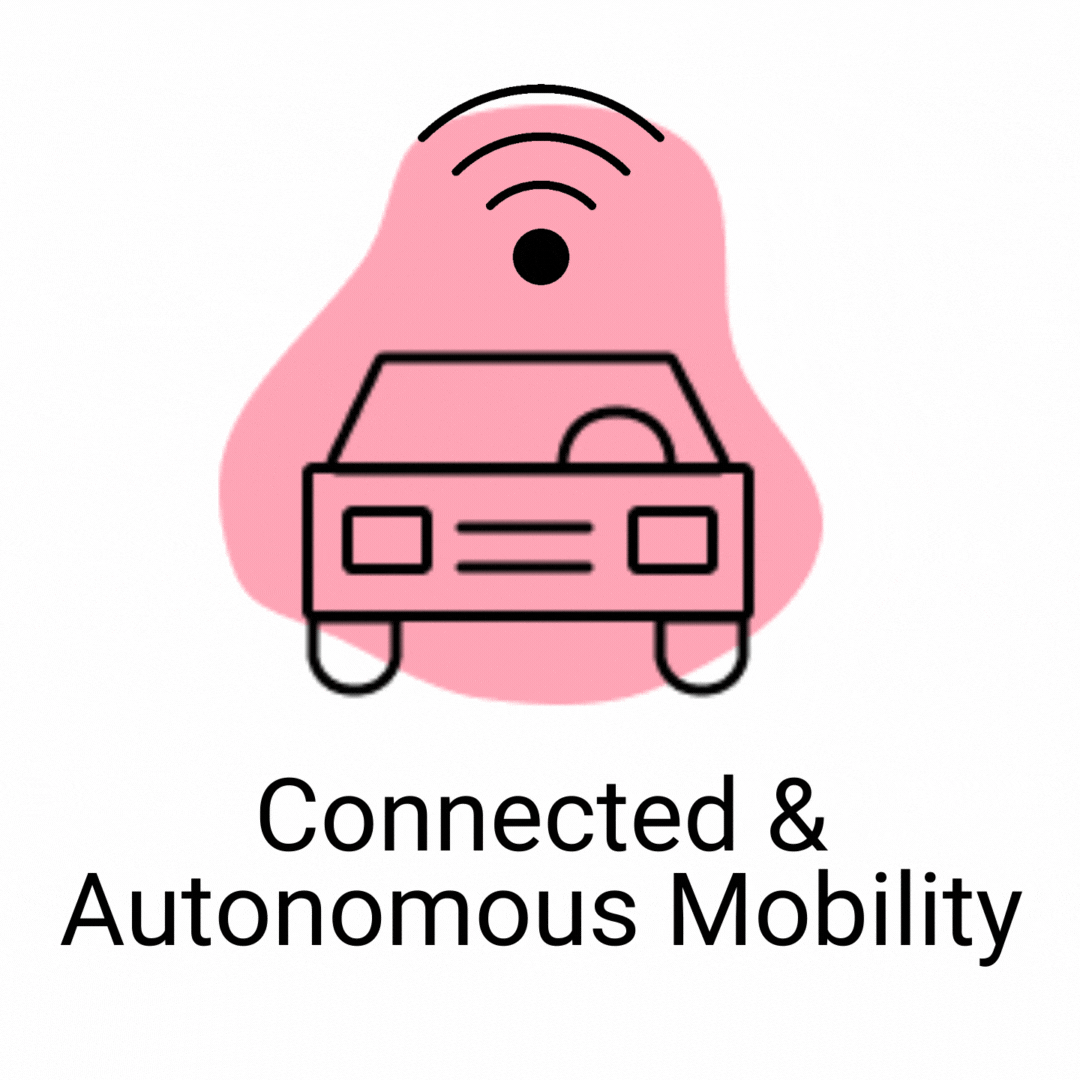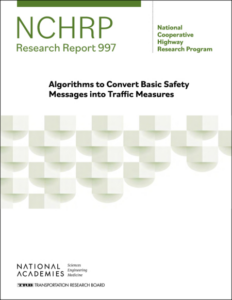Overview
Connected vehicles rely on short-range messaging using Basic Safety Message (BSM) data that includes information about vehicle size, speed, position, and heading (direction). In the future, all vehicles will be expected to send and receive this information to enhance safety and mobility. Exchange of BSM data among vehicles and traffic management systems will have the potential to generate traffic information that could be used to support current or develop new traffic measures such as travel time, end of queue information for work zones, road weather delay impact, and enhanced traffic signal control. This will be particularly valuable for arterial roadways and work zones in areas without instrumentation or where transportation systems management instrumentation is disrupted by construction.
C2SMART and Noblis, Inc partnered on this project, NCHRP 03-137, to develop algorithms to make BSM data usable for improving traffic measures.
Review Literature and Identify Existing Algorithms
To begin, the research team assembled a Stakeholder Panel of Experts drawn from academia, private and public sectors, in order to solicit input on BSM-based traffic measures, development experience and knowledge gaps. Interviews from the panel, alongside a literature reviews, were analyzed to develop a finalized report of findings.
Identify and Prioritize Traffic Measures
The second task for researchers was to identify key traffic measures that are commonly used by agencies for performance monitoring, traffic control, and traveler information. This information was used to recommend specific measures for consideration in the scalable algorithm development.
Key measures were identified based on gaps identified through the literature review and stakeholder interviews, including, but not limited to traffic control, incident management, mobility, and safety.
Develop Algorithms
Using the above groundwork, the C2SMART team developed algorithms to convert BSM data into the identified traffic measures using “emulated” BSMs. These algorithms will be validated using field and simulated data, and ultimately published alongside documentation in a panel-approved format to allow for use within existing software.
Research Objectives
This project seeks to develop and validate algorithms that will use BSM data to estimate selected traffic measures (e.g., performance monitoring, traffic control, traveler information), with a view toward positioning state and local agencies to use BSM data to reduce cost, improve accuracy, and add new measures to their systems management capabilities.
Related Media














